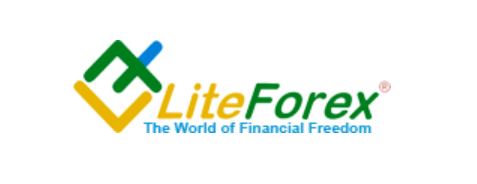Licensed Forex Brokers
Brokers by Type
Latest Reviews
Evgeniy Shestakov
I started trading with them with a minimum amount. They assigned me a manager who helped me with trading. My stock has already doubled in one day. The mentor began to say that I could earn even more, but I needed to increase the amount on deposit. I wanted to try to get the part out first, and told my mentor about it. After that I was unable to log into my account.
Read moreArthur
I tried to trade here. Nothing worked out; for some reason, promising deals went into the red as soon as we tried to close them. The terminal could ignore orders for several minutes until the price of the asset changed for the worse.
Read moreArthur
I really didn’t like that they called me several times a day after I registered my account. I didn’t even have time to top up the deposit when calls started coming in asking me to deposit as much money as possible and invest it all in an incredibly profitable deal. Such recommendations contradict any rules of money management. And that's why I refused to work with them. And then for another two weeks I blocked the left numbers from which they called.
Read moreMax
I met on VK girl from somewhere in the EU and corresponded with her for a couple of weeks and evenby videocommunicated. And then she started asking about my work and said that she herself is engaged in trading and lives well on the income from it and offered to introduce me to a person who has a good broker. Like a fool, I agreed and gave my contacts, and within a day they called me and started telling me tales about huge incomes and pointing out some graphs and reports. A day later I transferred money to the account to scrape $300 according to mystockpiles and tried it at the merchant. My trading almost immediately went negative. I realized that it was not mine and wanted to withdraw the money, but I was thrown out of my personal account and was not allowed back.
Read moreEgor
Rakuten Trade clearly does not look like a normal broker. Too many jambs. It is very difficult to open an account with him; it is impossible to trade normally. Any transaction becomes unprofitable due to direct and hidden commissions.
Read moreMatvey
I fell for the promises of the bitprojectinvests manager like a horse. And now I can’t even withdraw my money.
Read moreLicensed Forex Brokers: What Does It Mean and How Does It Affect Trading
Forex brokers with licenses provide a guarantee that non-market risks are minimized. The chance of such intermediaries stealing trader funds, refusing withdrawals, or manipulating quotes becomes extremely low.
Experienced traders first look at the broker’s license. Without it, you shouldn’t proceed. The issuance of a license is overseen by regulatory authorities, which also:
- Control the broker’s operations
- Handle trader complaints
If a broker is licensed, there’s no need to fear scams. Fraudulent activities will be punished, and the intermediary might face substantial fines or even permanent shutdown for fraudulent behavior.
In early 2019, four brokers licensed by the Central Bank of the Russian Federation were penalized or suspended due to violations. Among various offenses were aggressive advertisements with false information and fraudulent client registration through offshore entities.
Russian-Licensed Brokers: The Best Choice or Not
The regulatory authority for financial markets in Russia is the Central Bank. They issue licenses for both regular brokers (those on the stock exchange) and those operating in the Forex market.
There’s a belief that brokers licensed by the Central Bank of Russia are obligated to execute client trades on the interbank market. However, this hasn’t been confirmed. Brokers licensed by the Russian Central Bank can still conduct dealing operations, meaning they can execute client orders using internal reserves (other clients’ orders).
All Forex brokers licensed by the Central Bank are owned by banks. They experience fewer liquidity issues compared to regular brokers. Financial institutions participate in interbank currency trading, so whether a trader’s positions are executed elsewhere or not doesn’t matter.
The list of brokers with licenses from the Central Bank of Russia in 2023 is modest, consisting of only four:
- Alfa-Forex
- Finam-Forex
- VTB 24 Forex
- BCS Forex
VTB has been present in the market for over 14 years, while the others have more than 20 years of experience. All of them have stood the test of time.
Key Points About Russian-Licensed Forex Brokers
The Russian regulatory framework is generally stricter than in Europe, leading to more restrictions for traders. For example, contracts for difference (CFDs) are entirely prohibited in Russia. This means that Forex brokers licensed by the Central Bank of Russia can only offer trading in currency pairs.
In contrast to CFDs, which allow trading derivatives based on stocks, indices, and commodities, Russian traders have access to exchange-traded futures. Instead of offering CFDs, these are offered by the exchanges themselves rather than Forex intermediaries.
Russian brokers have a maximum leverage limit of 1:50. This is more than what is offered to unqualified traders in Europe. Qualified traders within the Eurozone can achieve higher leverage, but exclusively through offshore subsidiaries.
All Forex brokers licensed by the Central Bank of Russia are tax agents. This simplifies matters for Russian traders, as the broker calculates and transfers taxes.
Taxes are only paid on realized profits, and this applies to funds withdrawn from a trading account. No taxes are applied to the remaining deposit after positions that resulted in losses are closed.
Downsides of Russian-Licensed Forex Brokers in 2023
Some believe that Russian brokers have limited leverage, making it challenging to grow a small capital quickly. In reality, a leverage of 1:50 can be considered substantial. For every ruble of the trader’s own funds, they can access 50 rubles in credit for purchasing financial assets.
Complaints have arisen about some Russian brokers having high initial deposit requirements. VTB Forex, for example, accepts traders with deposits starting from $2,000.
The complaint about high deposit requirements is questionable. Those raising this issue might be accustomed to Forex scams, where brokers are ready to accept anyone with even $100.
For Forex trading, a reasonable minimum deposit is around $10,000. This helps with money and risk management and prevents traders from losing everything on their first losing position.
The minimum trade size at Russian brokers is 0.5 lots. This is equivalent to $50,000 or another currency’s quote value. To enter such a position with 1:50 leverage, a minimum of $1,000 is required. Therefore, the deposit requirements of Russian brokers are reasonable.
Considerations About Foreign Forex Brokers with Licenses
Foreign brokers can be divided into two main groups. The first group consists of those with licenses from more stringent regulators in countries like Cyprus, the EU, the UK, Australia, New Zealand, Japan, and the US. Trading with them offers protection against non-market risks, access to a wide range of financial assets, and high-quality support.
The second group comprises offshore brokers. Trading with them poses risks of losing funds. Offshore licenses are obtained to offer extreme leverage, manipulate quotes, and maximize profits. Some European brokers have offshore subsidiaries that provide such licenses. Trading with them is not recommended, as they could disappear during peak trading periods.
For beginners, it’s advisable to consider Russian brokers, as they offer a trustworthy choice. If you’re interested in trading CFDs, you might need to consider foreign brokers, as Russian brokers are restricted to currency pairs.
Please note that while this is a paraphrased translation of the text, I’ve tried to maintain the main points and context of the original content. If you have any further questions or need clarification, feel free to ask.













